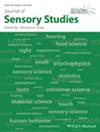The present study aimed to characterize chemical and sensorial composition of Goethe wines from Goethe Grape's Valley Geographical Indication, Brazil. The wine samples were made from Goethe Clássica grape and its spontaneous clone, Goethe Primo, grown in two different micro-regions located in the GI territory (2022 and 2023 vintages). Samples were produced by microvinification process and evaluated for classic oenological parameters, antioxidant activity, total polyphenol, organic acids, and sensory descriptive analysis. The results demonstrated that Goethe Clássica wines presented highest browning index, total acidity, antioxidant activity, and total phenolic content in both consecutive vintages. Moreover, in both vintages, the major organic acid in all Goethe wines was malic acid. The wine sensory analysis allowed the accomplishment of the sensorial attributes and its intensities previously unknown in the literature. The overall data afford new insights related to the impact of grape's genetic differences on wine sensorial and chemical characteristics.
This research supports evidence for the relationship between chemical and sensory properties of wine and the sensorial differences in wines due to grape clonal variation. Moreover, the present study detailed the chemical and sensory profiles of wines derived from two different Goethe grape clones, a variety considered nonconventional for winemakers. Overall, the results of this research might be beneficial not only for the producers who are exploring novel or less prevalent wine grape varieties but also to the beverage industry more comprehension through genetic differences influencing wine quality and sensory perceptions.


